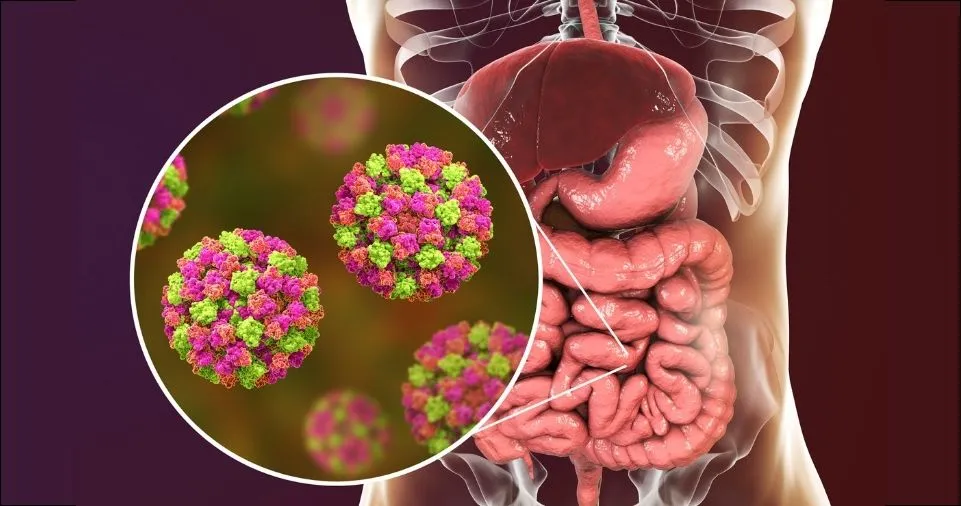In today’s fast-paced world, it’s easy to get caught up in work, social obligations, and the constant demands of daily life.
However, amid all the hustle and bustle, it’s crucial to remember the most important asset you have: your health.
Wellhealth, the combination of physical, mental, and social well-being, is the foundation of a fulfilling and successful life.
Good health empowers you to face challenges, perform better in your personal and professional life, and lead a long and active life.
Maintaining wellhealth involves more than just avoiding illness. It requires adopting healthy lifestyle choices that include balanced nutrition, regular exercise, sufficient rest, proper hydration, and stress management.
This article will explore the importance of wellhealth and provide detailed guidance on how you can improve and maintain it.
By taking proactive steps toward a healthier lifestyle, you can experience better physical health, mental clarity, emotional well-being, and overall life satisfaction.
With practical advice, real-life examples, and easy-to-understand tips, this guide will help you prioritize your well-being in a way that feels achievable and rewarding.
What Is Wellhealth?
Wellhealth refers to a state of complete physical, mental, and social well-being, and not merely the absence of disease.
It encompasses a balanced approach to life, where every aspect of your health is nurtured and cared for.
Achieving wellhealth is not a one-time task but rather a continual process that involves conscious decision-making in your daily habits and lifestyle choices.
It affects every area of your life, from your energy levels and mental clarity to your productivity and emotional resilience.
Key Elements of Wellhealth
The concept of wellhealth is multidimensional, with several key components working together to enhance your overall quality of life.
Here are the core elements that make up wellhealth:
- Physical Health: This involves maintaining a healthy body through good nutrition, regular exercise, adequate sleep, and proper hydration.
- Mental Health: A healthy mind contributes to emotional stability, cognitive function, and resilience against stress, anxiety, and depression.
- Social Well-being: Positive social connections and supportive relationships enhance your emotional health, fostering a sense of belonging and reducing feelings of loneliness.
By focusing on these three key aspects, you create a solid foundation for achieving and maintaining wellhealth.
Why Is Wellhealth Important?

Wellhealth plays a significant role in improving both the quality and longevity of your life.
By maintaining a balanced approach to physical, mental, and social health, you can experience numerous benefits that positively affect all aspects of your life.
Let’s take a closer look at how wellhealth impacts you:
Increased Energy Levels
When you prioritize your health, your energy levels soar. A healthy lifestyle ensures your body has the nutrients and rest it needs to perform at its best.
Whether it’s waking up early, working throughout the day, or engaging in activities after hours, good health gives you the energy to tackle your tasks with enthusiasm.
By maintaining a balanced diet, exercising regularly, and getting enough sleep, you’ll notice a significant improvement in your overall energy levels.
Enhanced Mental Clarity and Emotional Stability
Your physical health directly impacts your mental and emotional well-being.
Regular exercise, a balanced diet, and good sleep promote mental clarity, reduce stress, and improve emotional regulation.
Mental health issues like anxiety, depression, and fatigue are often linked to poor physical health.
Taking care of your body leads to a positive cycle that benefits your mind, boosting your mood, increasing productivity, and fostering better decision-making abilities.
Strengthened Immune System
A robust immune system is essential for fighting off infections and diseases.
By eating a nutrient-rich diet, exercising regularly, and managing stress, you can enhance your immune function.
This not only reduces your risk of getting sick but also speeds up recovery if you do fall ill.
Regular physical activity and good nutrition can strengthen your body’s defenses and help you stay healthy longer.
Reduced Risk of Chronic Diseases
Good health reduces your risk of developing chronic conditions like heart disease, diabetes, obesity, and high blood pressure.
Maintaining a healthy weight, eating well, and exercising regularly are powerful tools in preventing these diseases.
Additionally, by adopting healthy lifestyle habits, you can manage existing conditions better, leading to a higher quality of life.
Improved Productivity and Performance
When you’re healthy, you’re able to focus better, stay alert, and be more efficient in your work.
Physical health contributes to mental sharpness, and as a result, you are able to complete tasks more effectively and with greater attention to detail.
Whether at home, at work, or in social settings, being in good health enables you to perform at your best.
Enhanced Sleep Quality
Good health promotes better sleep. Exercise and a balanced diet help regulate your sleep patterns, leading to more restful and restorative sleep.
This allows your body to recover from the day’s activities, improve cognitive function, and rejuvenate energy levels. Better sleep is key to mental health, productivity, and overall well-being.
ALSO READ: WellHealthOrganic Home Remedies Tag
Key Pillars of Wellhealth

Achieving wellhealth requires adopting several key practices that collectively enhance your physical, mental, and emotional well-being.
Let’s explore these essential pillars in detail:
Balanced Diet: The Cornerstone of Health
A balanced diet is essential for providing the body with all the nutrients it needs to function properly. A nutrient-rich diet supports optimal body function, mental clarity, and energy.
Here’s a breakdown of the essential components of a balanced diet:
Macronutrients for Energy and Health
Carbohydrates:
Carbs are the body’s primary source of energy. Choose complex carbohydrates such as whole grains, fruits, and vegetables for a steady release of energy throughout the day.
Whole grains like quinoa, oats, and brown rice are excellent sources of sustained energy and fiber.
Proteins:
Protein is vital for the repair and growth of tissues, including muscles. Lean proteins such as chicken, fish, beans, lentils, and tofu help build muscle, repair cells, and boost your metabolism.
Healthy Fats:
Fats are important for brain function, hormone regulation, and overall cell health. Incorporate healthy fats like avocado, nuts, seeds, and olive oil into your diet.
Micronutrients for Optimal Function
Vitamins and minerals play crucial roles in various bodily functions.
For example, vitamin D is essential for bone health, while vitamin C strengthens the immune system.
A variety of fruits and vegetables, nuts, and seeds provide the vitamins and minerals your body needs to function at its best.
Regular Exercise: A Key to Wellbeing
Exercise is a cornerstone of good health. Not only does it improve physical fitness, but it also offers a host of mental and emotional benefits.
Here’s how regular exercise contributes to wellhealth:
Benefits of Regular Exercise
Cardiovascular Health:
Exercise strengthens your heart, improves circulation, and lowers blood pressure, reducing the risk of heart disease.
Weight Control:
Regular physical activity helps control body weight, maintain a healthy weight, and prevent obesity-related conditions like diabetes.
Muscle and Bone Health:
Weight-bearing exercises, such as walking, running, and strength training, build and maintain strong bones and muscles, reducing the risk of osteoporosis and arthritis.
Mental Health:
Exercise triggers the release of endorphins, natural chemicals that help improve mood and reduce stress and anxiety.
Better Sleep:
Physical activity promotes deeper, more restful sleep, which is crucial for recovery and overall health.
Sleep: The Pillar of Recovery
Sleep is critical for recovery, cognitive function, and emotional well-being. Adequate sleep supports the body’s repair processes, restores energy, and consolidates memories.
Here are key tips for improving your sleep:
Sleep Optimization Tips
Establish a Sleep Routine:
Going to bed and waking up at the same time every day helps regulate your body’s internal clock.
Create a Comfortable Environment:
Ensure your bedroom is quiet, dark, and at a comfortable temperature to promote restful sleep.
Avoid Stimulants:
Avoid caffeine, alcohol, and heavy meals before bedtime, as they can interfere with your ability to fall asleep.
Hydration: Fueling Your Body with Water
Water is essential for every cell and function in your body. Staying hydrated supports your organs, keeps your joints lubricated, regulates body temperature, and helps improve cognitive function.
The Importance of Hydration
Organ Function:
Water helps your kidneys, liver, and other organs function properly. It also aids in digestion, nutrient absorption, and detoxification.
Energy and Mental Clarity:
Dehydration can cause fatigue, difficulty concentrating, and memory problems.
Drinking enough water ensures that your body and brain have the necessary resources to perform at their best.
Skin Health:
Hydrated skin is more elastic and less prone to dryness, reducing the appearance of aging.
Stress Management: Safeguarding Your Wellbeing
Chronic stress can undermine your health, leading to mental and physical issues like anxiety, depression, and hypertension. Effective stress management is vital for maintaining wellhealth.
Stress-Reduction Techniques
- Mindfulness and Meditation: These practices help you stay present, reduce stress, and promote relaxation.
- Physical Activity: Exercise is a powerful stress reliever that helps the body release tension and improve mood.
- Time Management: Prioritize tasks and set realistic goals to manage work and personal responsibilities without feeling overwhelmed.
Take a Free Health Test: Understand Your Health Status
A free health test or self-assessment can help you evaluate your current lifestyle and identify areas that need improvement.
By understanding your health status, you can take proactive steps to improve your well-being.
ALSO READ: WellHealth Ayurvedic Health Tips
Conclusion: Achieving Wellhealth for a Better Life
Achieving wellhealth is an ongoing process that requires commitment, consistency, and dedication.
By making small, intentional changes in your diet, exercise routine, sleep habits, hydration, and stress management, you can significantly improve your quality of life.
Remember, wellhealth isn’t just about avoiding illness – it’s about cultivating a balanced, fulfilling life that allows you to thrive physically, mentally, and emotionally.
Prioritize your health today, and enjoy the long-term benefits of increased energy, productivity, mental clarity, and overall well-being.
Taking care of your wellhealth today sets the stage for a vibrant future.
We at well-healthorganic.com shares helpful blogs about natural health, Ayurveda, and fitness. We provide easy tips, home remedies, and simple advice to help you live a healthy and balanced life. Explore ways to stay fit and enjoy natural living with us.



